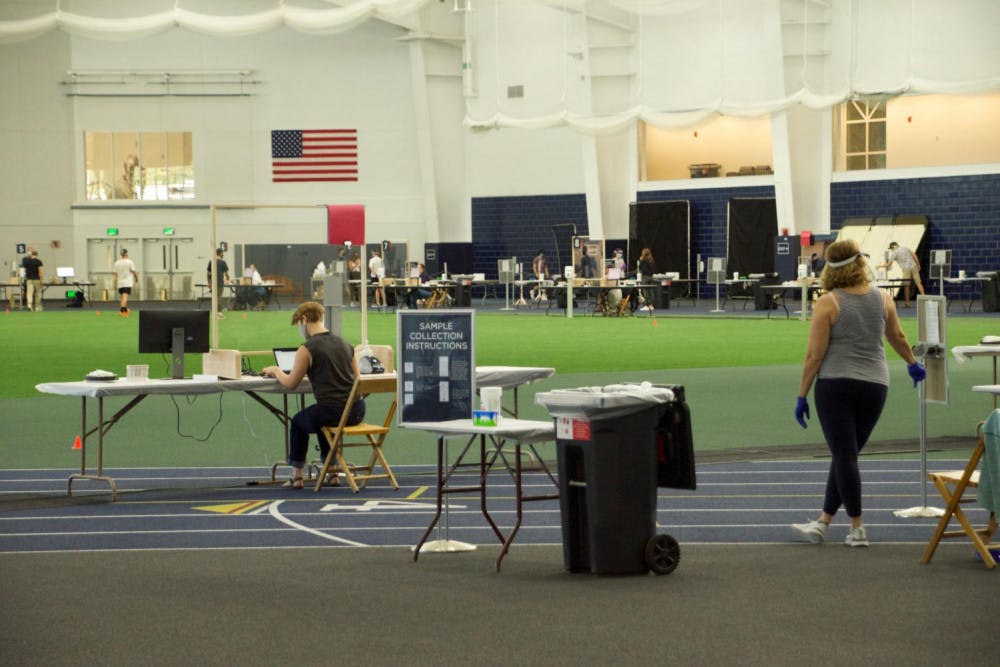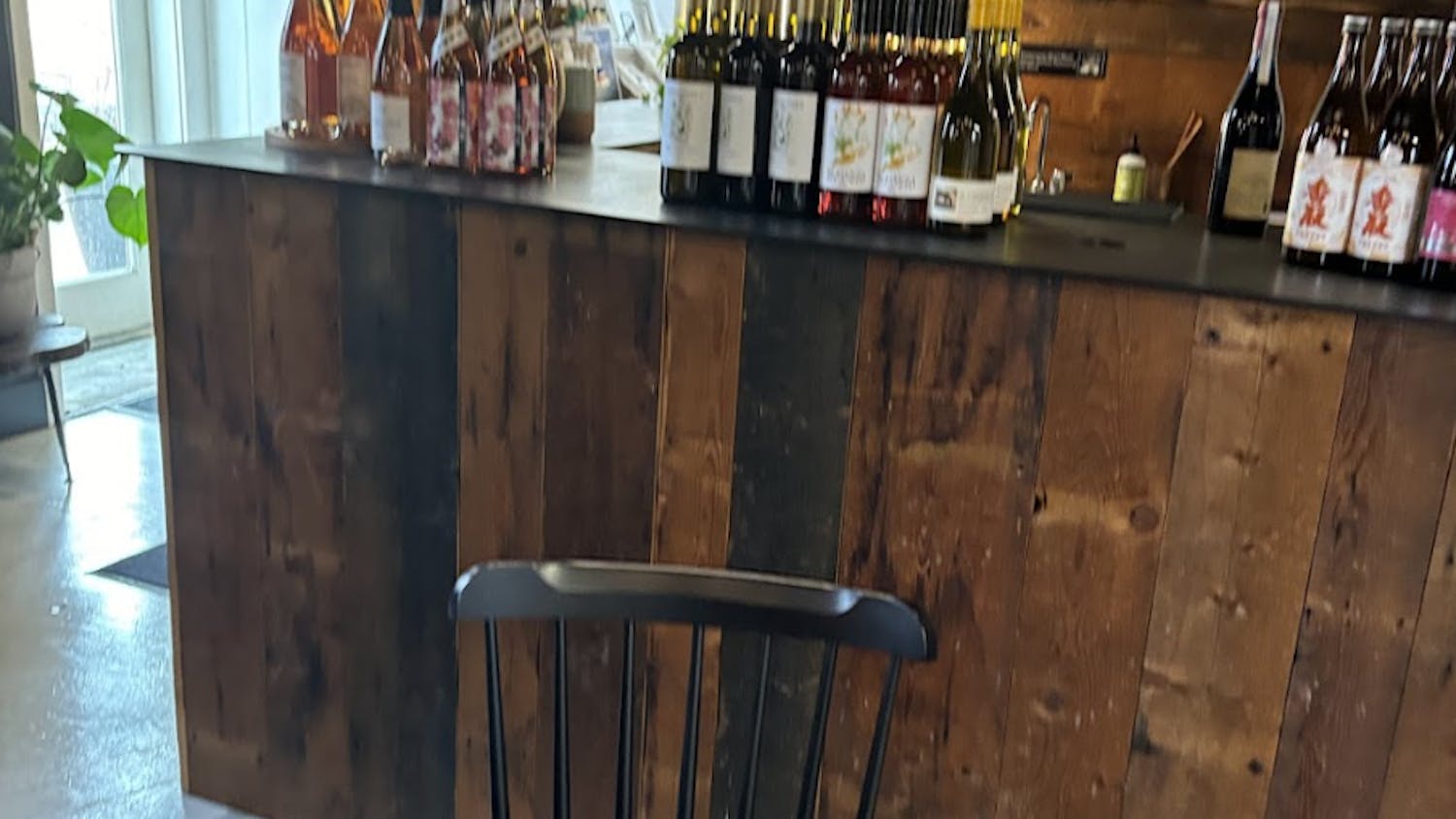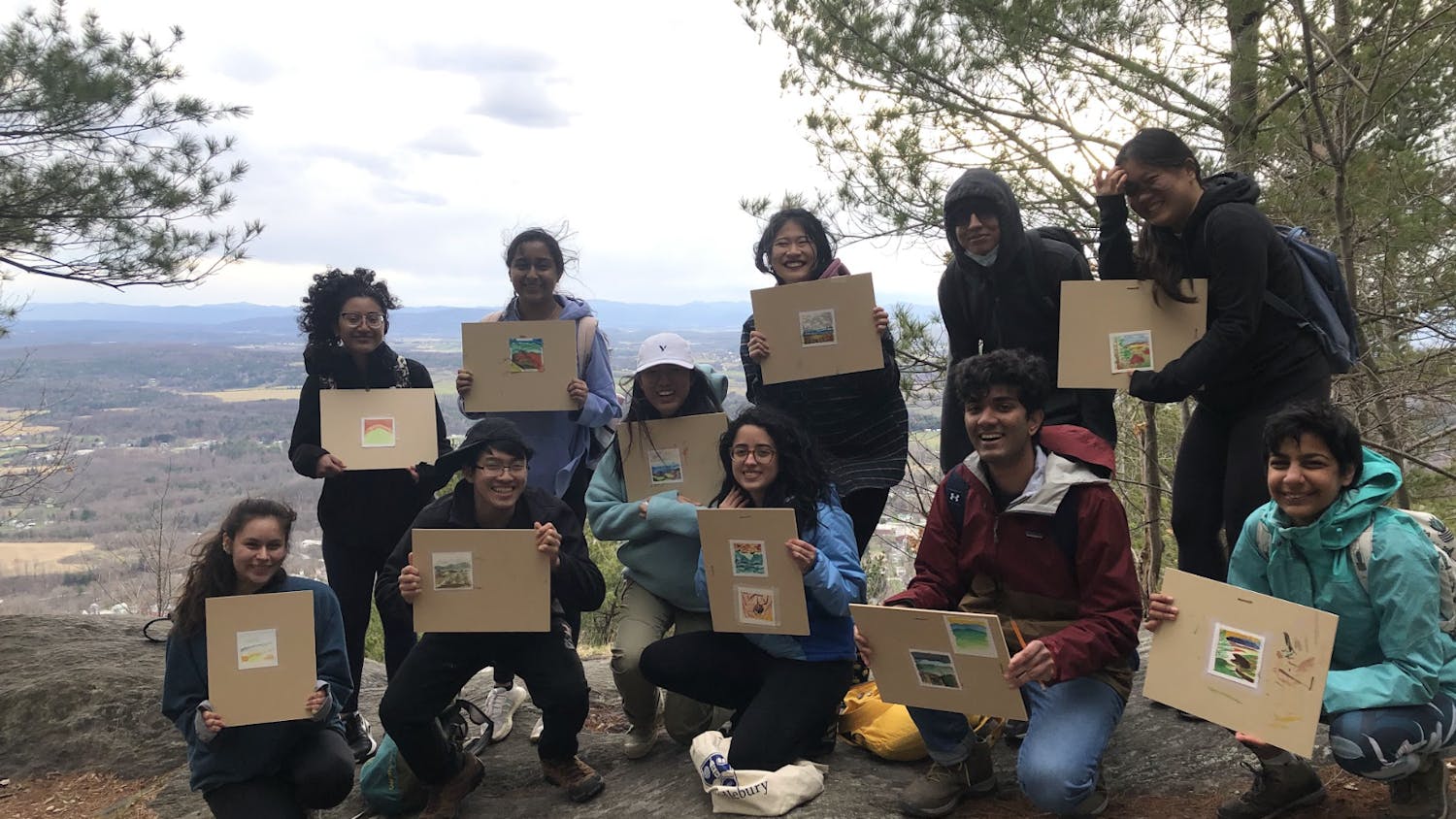Roughly a year after the start of the Covid-19 pandemic, the vaccination process in Vermont is in full swing. Those older than 65, healthcare workers and long-term care residents and staff are currently eligible for the vaccine.
The state moved to inoculate those that were most vulnerable first, a decision that was made to minimize the number of deaths from Covid-19, according to Gov. Phil Scott’s statements in a press release.
As of this week, 18.2% of the total population in Addison County has received at least one dose of the vaccine. The state has administered a total of 164,700 doses, and a total of 58,400 people have completed their vaccination process across Vermont, according to the Covid-19 Vaccine Dashboard presented by the Vermont Department of Health.
In light of new cases and the pandemic’s persistence, Scott has extended the Covid State of Emergency to March 15. The designation eases the allocation of funding to local governments and places significant power in public health officials to implement regulations. In the past two weeks, there were a total of 90 new coronavirus cases in Addison County.
“The State of Emergency remains a needed tool to help us manage and respond to the pandemic,” Scott said in the press release. “As we continue to vaccinate more Vermonters, I’m hopeful there won’t be too many more of these extensions and we’ll get back to some sense of normal.”
Moving to Phase 4
As of early March, the state entered Phase 4 of its Covid-19 vaccination program, allowing those 65 and older to register for the vaccine in addition to all healthcare workers and first responders.
On March 8, Vermont is planning to move into Phase 5a, in which individuals aged 55 and older with identified high-risk health conditions will become eligible to be vaccinated. State officials also predicted opening up registration to K-12 teachers, staff and childcare workers, pending supply.
Vermont Health Commissioner Mark Levine said in an announcement that the 125,000 Vermonters who are 65 and older are targeted to receive their vaccinations by the end of spring.
The Vermont Department of Health estimates that the state will be ready to begin Phase 5 in late March, when people with high-risk health conditions will be eligible to receive the vaccine. These include but are not limited to cancer, pregnancy, obesity and certain heart conditions.
Mixed responses from the community
The community has had mixed responses to the state’s choice of priority groups eligible for vaccination. While some Vermonters are grateful to have already been able to access the vaccine, others farther down the priority list expressed concern with how long they may have to wait for their turn.
Piper Harrel, whose husband has Type 1 diabetes, was outraged that the disease was not included on the list of high-risk health conditions that qualify one to be vaccinated during Phase 5.
“Looking at the list, it was like, you gotta be f***ing kidding me,” Harrell told VT Digger. “It was like a punch in the gut.”
Khristen Pannone, whose husband Mario has polycystic kidney disease, expressed similar concerns. As the sole proprietor of a heating system repair company, he is not able to quit his job.
“If I don’t work, we don’t eat,” he told VT Digger.
“The soonest my husband would get a vaccine is April,” Pannone said. “And to me, that’s just unacceptable. You’re asking him to continue to go and work on a daily basis, and you’re telling him the soonest you can protect him is April?”
Dr. Levine justifies the decision by citing that elders have the highest death rates after contracting Covid-19. “We are really trying to preserve life — make sure we can keep as many Vermonters from dying,” he said in an interview in early February.
As of March 2, however, chronic kidney diseases and diabetes were both listed as health conditions qualifying individuals for vaccination during Phase 5 on the Vermont Department of Health’s website.
Courtney Allenson, the director of a local senior living facility, received her shot in January. “I am so happy to get my shot today. I am so happy,” she told WCAX. “We trust in the company that is making the vaccine, and we trust in the process.” She added that the facility, called The Residence at Otter Creek, is not worried about the state running out of doses.
“I thought probably there would be more medical people and rescue people, and all that might [cause vaccine shortages], but apparently not. They thought us old folks were worth doing something for,” Jan Anderson, an elder resident at the facility, told WCAX.
“At this point, the biggest challenge to vaccine distribution is the number of doses Vermont is receiving from the federal government, as well as reluctance from some people to receive a vaccination,” Addison County Senator Ruth Hardy told The Campus. “However, each week, the Biden Administration is expanding vaccine distribution to states, so I expect the pace to accelerate.”
Vaccinations for college students
As for the student community, Vermont schools continue to see low case counts compared to the general population. Education Secretary Dan French said in a news release that the state tested 2,200 school staff members this week, finding just one positive case.
At Middlebury College, the Health Center staff has already been vaccinated, according to Sandy Robinson, director of Health Services. The student Ski Patrol squad was also eligible for the vaccine due to their classification as first responders. The Health Services office at the college is regularly meeting with the Vermont Department of Health and other Vermont colleges regarding vaccines for the students.
“The topic of vaccinating students is an ongoing agenda item. However, college undergrads do not currently meet the eligibility criteria for the Covid-19 vaccine in Vermont,” Robinson said. “As more vaccines get approved and as the state moves forward with its vaccination plan, we will know more about what can be offered to college students.”
Scott praised the FDA’s emergency approval of the Johnson & Johnson Covid-19 vaccine in late February, which adds a third supplier into the mix and requires only one shot.
“This is another significant step forward in our work to end this pandemic” Scott said. “I join many in Vermont and across the country in welcoming this news.”

Florence Wu '22 is the multimedia editor specializing in photojournalism. She enjoys photography as a way of connecting with others, as well as recording special events and moments in her personal life. She is inspired by the works of Robert Frank, Joel Sternfeld, Alec Soth, Teju Cole, and Gregory Halpern. This year, she will be working on a photojournalism project on the lives of workers at the college and town of Middlebury. Feel free to contact her via email for photo, video or podcast ideas.




